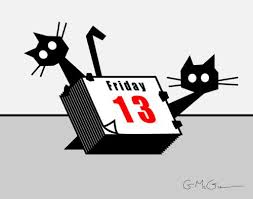August is National Grief Month. Last week our Pastor, Jan Hartsook talked about grief. She touched on the different things that can cause us grief and the stages that many go through to work through grief. Here is a little more information about some types of grief.*
• Normal/Common Grief – Many people cope with grief and carry on a normal daily routine despite their grief. Under the surface, an individual may be grieving and experiencing intense feelings of grief at different times. However, on the surface, they seem like they are carrying on as normal.
• Complicated Grief – this is grief such that it actually keeps the individual from carrying on their daily lives. It can lead to irrational thoughts and avoidance behaviors, like avoiding anything that reminds the griever of their loss. This can feel like a constant presence making one feel boxed in by the grief.
• Inhibited Grief – To avoid pain, some avoid facing the reality of their loss. They might throw all their energy into something else; avoiding the grief to avoid the pain. On occasion, inhibited grief can lead to physical problems like headaches, loss of sleep or digestive issues.
• Disenfranchised Grief – We grieve for many things and this is where disenfranchised grief can appear. Losing something that does not seem worthy of grief, to others, can put more pressure on the griever to push down or suppress their feelings. Loss of a pet, a job, someone we don’t actually know, these are all examples.
• Absent Grief – Similar to Inhibited Grief, this happens when feelings are silenced and pushed down. When people act as if nothing has happened it can lead to denial and avoidance.
• Anticipatory Grief – This is when someone starts to feel grief before loss actually happens. An example is when you know someone who has a terminal disease, and the emotion of grief begins before they pass away.
• Exaggerated Grief – This type of grief is similar to complicated grief where sorrow and the inability to function don’t improve over time. Sometimes this happens if someone experiences more than one loss at a time or in a short period of time. Life feels overwhelming and makes it hard for the griever to cope.
• Cumulative Grief – When there are multiple losses in a short period of time, this can cause cumulative grief.
• Delayed Grief – This is just as described, when feelings of grief don’t appear immediately. It is possible that pent up feelings of grief can get stronger over time, making it more difficult to cope later than after the initial situation causing the grief.
• Collective Grief – This is a type of grief that is experienced by a group of people. It might be someone in the public eye, like a political leader or celebrity that people are mourning. It could also be something that comes as a large event like an earthquake, fire or other natural disaster.
Experiencing grief is a common experience. We all experience grief, we just don’t all do it in the same way. There is no one way to experience grief. Individuals need to be able to recognize and be aware of what is causing them grief and then find the best ways to process it in a healthy and healing way. Understanding the different types of grief might be of help when we are trying to process grief for ourselves, or when we are helping a loved one with their grief.
*Used as resources here, there are many, many resources for information about grief: happiness.com, knowyourgrief.org, grief.com, mayoclinic.org, psychologytoday.com, health.com





